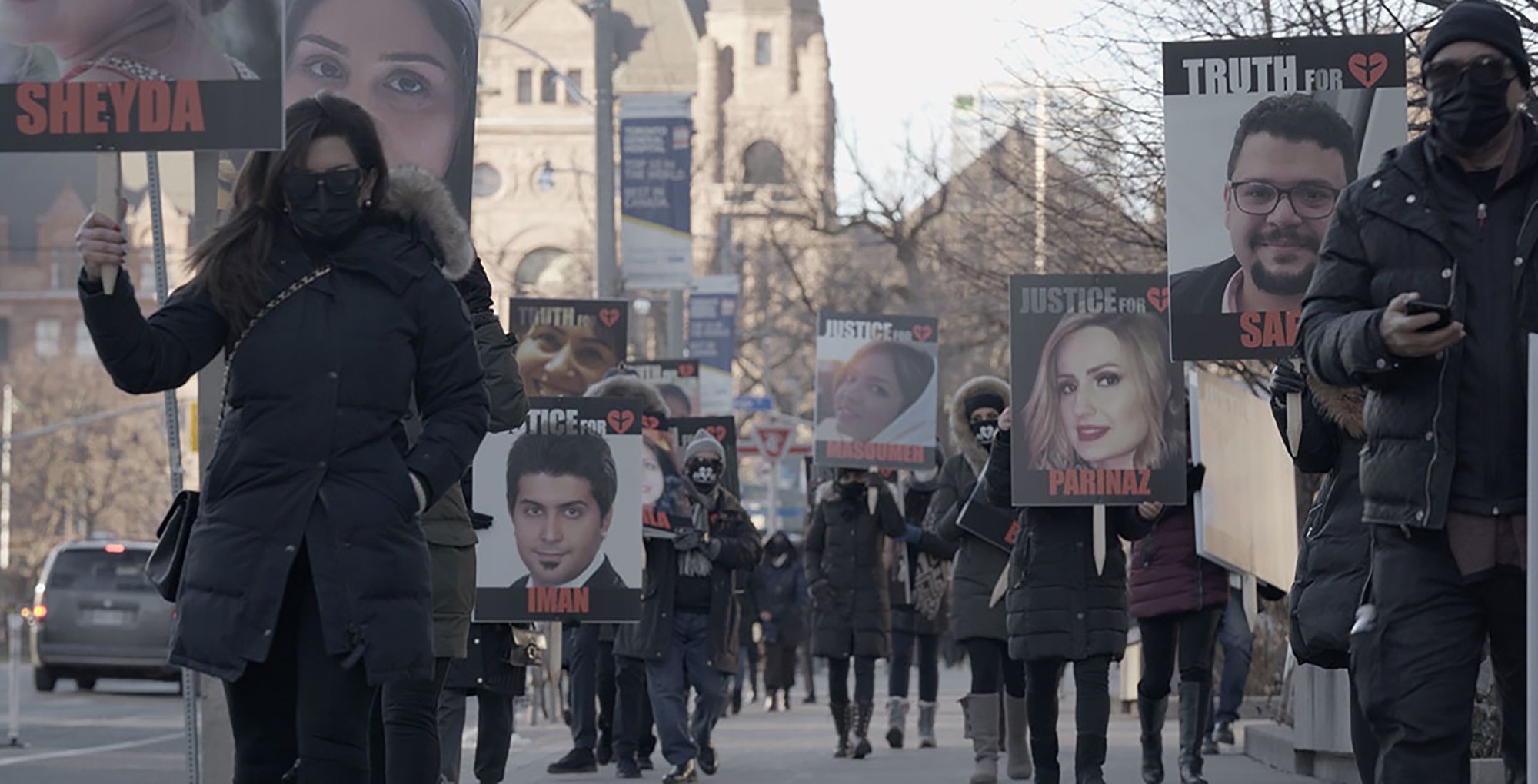
- Festivals
TIFF 2022: Documentary “752 Is Not a Number” Spotlights Deep Grief, Love
Stories of revenge permeate cinema — so much so that if extraterrestrials had to write up a report on humankind based only on an observational surveying of our most popular entertainment, they could be forgiven for arriving at the belief that accountability was only possible through eye-for-an-eye violence.
But there is another side to the pain of loss to that which typically motivates vengeance. And that is an unyielding persistence of the pursuit of justice, which is mostly driven, in fact, by love. The documentary 752 Is Not a Number, which recently made its world premiere at the Toronto International Film Festival, chronicles one such moving tale — the quest for answers by one man in the aftermath of losing his wife and young daughter.
On January 8, 2020, Ukraine Airlines Flight 752 went down as it was leaving air space over Tehran, Iran. All 176 people on board were killed, many of them Iranian Canadians (the latter fact an element which gives this film a distinctly Canadian frame). The incident took place against a backdrop of heightened tensions between Iran and the United States, coming five days after the drone-strike American assassination of Iranian Major General Qasem Soleimani, and only hours after the Iranian military had launched retaliatory ballistic missile strikes on an American airbase in Iraq.
Immediately after the crash, video footage surfaced showing Flight 752 being struck by what appeared to be an object fired from the ground. For days, Iranian authorities vociferously denied any responsibility, saying the plane had been felled by an engine fire. Their claims rang somewhat hollow, however, given that government agencies quickly bulldozed the crash site, destroying crucial evidence, and additionally refused to grant international safety and oversight bodies access to any of the aircraft’s wreckage or its black box voice recorders.
The intelligence apparatuses of various foreign governments, as well as news agencies, reported that Flight 752 had in fact been shot down by the Iranian military. Eventually, Iran’s government began to backtrack. Their story shifted, from malfunction to pilot error, before they finally admitted the plane was destroyed by a military missile — the result, they said, of a falsely identified threat.
This tragedy is the subject of 752 Is Not A Number, a portrait of raw, roiling grief poured into a cinematic steel thermos of personal doggedness. You see, Newmarket, Ontario, dentist Hamed Esmaeilion does not want an apology, nor compensation. He only wanted to find out the truth about the incident which claimed the lives of his wife Parisa and their nine-year-old daughter Reera. Determined not to let the Iranian government exploit the memories of his family, Hamed goes to Iran to claim their remains, and then embarks on a draining journey through bureaucratic red tape in an effort to bring justice to all the victims of this atrocity.
752 Is Not a Number is helmed by veteran Iranian-Canadian filmmaker Babak Payami, whose 2001 movie Secret Ballot won Best Director at the Venice Film Festival. Given similarities in their background, Payami develops a personal relationship with his subject, which gives his movie a disarming sense of intimacy. At times, it feels like little more than a collection of home video footage — which is very much part of the point. Payami wants viewers to sink into the quotidian routine rather than be given specific information, all the better to absorb the overwhelming personal nature of Hamed’s loss.
On a technical level, at times there’s the feeling that Payami has been constrained in a somewhat correlative fashion by the impositions of the COVID era, which limited a lot of Hamed’s outreach and activism to meetings and interviews conducted over Zoom. There is also the matter of the film’s very loose engagement with various strands of mystery and conspiracy. Hamed is contacted by at least two parties claiming special knowledge about the crash; some tease out information, asking for money, but one hints more darkly at Russian collusion as part of a broader campaign of international destabilization. The movie’s relative lack of interest in these topics may momentarily frustrate certain viewers grasping for what they feel is more definitive truth, but they further root and establish 752 Is Not a Number as the story of one man’s navigation of profound pain and misery.
The film most connects emotionally in small flashes of detail, and moments of reflection. It’s heartbreaking when Hamed notes that his wife and daughter weren’t on the list of the first 50 victims initially released after the crash, and speculates that this must have been because their bodies were more difficult to identify. Later, Payami and cinematographer Amir Ghorbani Nia let the camera linger on Hamed sorting through dead flowers and rain-stained offerings of condolence outside the door of his office. Finally, as the film moves toward its conclusion and progress seemingly arrives in the form of a Ukrainian legal action, Hamed copes with the effect of Russia’s invasion of Ukraine.
The poignance of these scenes, and also the way in which Hamed ultimately chooses to honor his wife and daughter, infuse 752 Is Not a Number with an intense humanity. They serve as a reminder of nonfiction cinema’s unique ability to locate heart-piercing reliability amidst great tragedy.